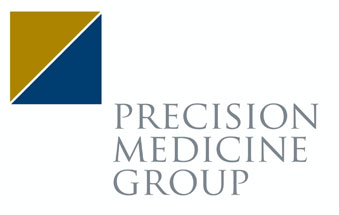
Capital markets have been tight for biotech and healthcare companies recently, but various commentators are suggesting that the macro environment regarding interest rates may be improving, and with it, a capital market recovery for the industry.[1] Biotech companies, who have felt the market contraction most keenly, may be the biggest beneficiaries of an upswing, including for example boards and management contemplating IPOs in the second half of 2023 and early 2024.
With a market rebound in sight, IPO hopefuls are asking themselves what they can do to prepare. In response to the market’s changing expectations, companies will be looking for ways to gauge and communicate readiness for public life. In response to tough capital markets, many biotech companies will limit spending to the essentials in the run-up to going public in 2024. In this article, we explain why firms seeking a public event in 2024 should consider ESG essential and push forward with ESG programs this fall in order to maximize valuation post-public event, attract long-term investors and prepare for life as public companies.
An increasing number of companies see launching an ESG program and reporting as essential in the run-up to IPO. An ESG program signals to the market a company is mature and taking a proactive approach to business model resilience. Materiality assessment provides a research-based foundation for the company’s ESG program, identifying areas of business risk to address. Gap analysis and roadmap creation take companies a step further, ensuring a balanced, stepwise approach to achieving their program goals. An ESG strategy and principles round out the launch of a holistic ESG program, helping companies ensure program development remains in alignment with their values, vision and business case, and communicating the company’s approach proactively to ESG to the market.

Publishing an ESG report encapsulates these efforts and communicates them outwardly. An ESG report conveying actionable steps taken to reduce risk, quantifiable progress against key performance indicators, and measurable goals and objectives to reach a desired future state serves as a valuable marketing tool for companies in the run-up to IPO. Annual reports and SEC filings accomplish this in part—but they are not reader-friendly. An ESG report presents the information concisely within a polished, visually engaging report designed for accessibility to ESG rating agencies, customers, partners and investors. As a result, these companies may be more successful at attracting the long-term investors.
Beyond the push to attract capital, companies undergo a significant transformation in adapting to various new demands on their time and resources as a public company. Publicly traded companies face new regulatory, compliance and reporting challenges, and a much higher degree of scrutiny compared with their private counterparts. They are responsible for maximizing risk-adjusted returns for shareholders and are accountable to a board of directors—expectations which newly public companies can find hard to satisfy. ESG helps firms anticipate, identify and manage important compliance, governance and disclosure-related responsibilities they will face as public companies. Many of the governance structures, information management systems, accountability and reporting procedures companies develop in support of an ESG program serve regulatory and compliance functions essential to public life.
For companies in the biotech industry in particular, going public is in many ways just another vehicle for raising capital. The benefits of ESG for private companies preparing for IPO are clear—but for companies that prefer an acquisition route, is ESG still beneficial? I argue ESG is also important for private companies preparing for acquisition. Most large biotech and pharma companies engaged in inorganic growth already have strong ESG programs in place internally. By closing the gap in ESG maturity between themselves and these larger companies, private companies increase their attractiveness to potential buyers and this also holds true for companies with large biotech or big pharma partners, who are increasingly evaluated on the ESG practices of their value chain.
What about private companies that intend to stay that way—does it make sense for these companies to practice ESG? For many companies, the answer is yes. While not tied to the timing of any particular event, ESG provides many of the same benefits to private companies it confers to public ones. Private companies rely on investors to raise capital, and to the extent investors respond positively to ESG, private companies set themselves up for fund raising success by practicing ESG. Beyond access to capital, ESG confers multiple benefits on companies making them stronger, more resilient and more likely to succeed in the long run – as reflects the reasons investors care in the first place, ESG is just good business and helps companies identify and manage sources of business risk; establish stronger and more robust governance structures and practices; enhance operational efficiency; ensure policies and procedures are aligned with sustained growth; encourage the establishment, tracking and monitoring of key metrics to gauge progress; facilitate talent acquisition and reduce turnover; and improve employee engagement and innovation.
Simply put, many investors and strategics expect their portfolio companies and partners to attain a level of competence across core ESG issues, and demonstrating ESG competence helps private companies position themselves favorably regardless of their goals. While companies can launch successful ESG programs at any point in time, capital markets for healthcare and biotech are poised for recovery in 2024 and companies should be making investments today that will help them access capital and maximize valuation heading into the year ahead. Private companies should consider incorporating ESG into their budgeting and planning this fall so they are poised to leverage ESG for value creation in 2024.
[1] https://www.biopharmadive.com/news/biotech-ipos-stock-performance-first-half-2023/685252/
____________________________________________________________________________________
Molly Podolefsky, Ph.D. (she/her)| Managing Director, ESG

